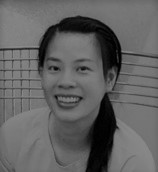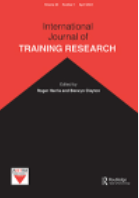Dr Leah Le has had a lifelong interest in teaching and she has risen to meet the challenge of being a university teacher and scholar, in not one, but two, countries, after relocating from Vietnam nearly a decade ago.
She is interested in learning how individuals learn in and through work to sustain their employability, especially in the era of constantly changing work and workplace requirements. Thus, much of her current research is in the field of lifelong adult education.
 Leah is inspired by family including her young daughter and enjoys the sense of accomplishment that her work provides. Her research journey did not start until she enrolled in Master of Education (research pathway) at Griffith University in 2013 then progressed to and completed her Doctor of Education in 2017. She says there have been many challenges and rewards from this process.
Leah is inspired by family including her young daughter and enjoys the sense of accomplishment that her work provides. Her research journey did not start until she enrolled in Master of Education (research pathway) at Griffith University in 2013 then progressed to and completed her Doctor of Education in 2017. She says there have been many challenges and rewards from this process.
Leah says
“In Vietnam, where I was a lecturer, we are encouraged to do research, but there is no requirement. There is more research there in hard sciences, but in social sciences it is very limited. I had some of the best supervisors when I came to Australia, and this helped me to grow and develop a lot in a whole new country. When I came to Australia, I grew more interested in research than teaching.”
Leah says there have been challenges and rewards in the process of not only relocating countries but becoming a scholar.
“English is taught in Vietnam but not spoken. I was an English teacher in Vietnam, but I had not used it a lot to write. Academic writing is not an easy thing to do, especially in a second language. I have had a lot of support and this is a continuing journey for me.”
She has a keen interest in curriculum development in tertiary education, with a particular interest in the process of building knowledge through scholarly engagement with industry in mix-sector tertiary institutions. As a senior research assistant, she has been involved in several projects, mostly led by Professor Stephen Billett.
“Under Stephen’s mentoring and supervision, I have grown so much as a researcher and lifelong learner. I have been given the opportunities not only to engage in numerous interesting and high-quality data sets but also to contribute intellectually to the projects and their outcomes.”
The projects in which Leah is currently a senior research assistant include the ARC Discovery project ‘Practices and policies for sustaining employability through work-life learning’ and new grant ‘Initiating, building and sustaining Industry-school partnerships to realise diverse post-school pathways’, both led by Professor Stephen Billett.
In progressing through her research journey, Leah has developed skills in survey design using online survey tools, e.g., LimeSurvey, SurveyMonkey, Qualtrics or Google Forms, and expertise in using SPSS for statistical data analysis.
She also has expertise in conducting interviews and qualitative thematic analysis using template analysis technique, NVivo and Leximancer. Quantifying the qualitative is one of the techniques I have used to analyse substantial sets of interview data.
Leah says:
“I like the challenge of exploring different data sets. When I explore data sets, it provides a story behind people’s behaviour. I feel like through data sets I can understand people’s experiences and learning journeys.”
As a sessional lecturer and tutor, Leah is passionate about teaching research methodologies and assisting students in exploring research approaches that would best suit their research projects. When other academics or HDR candidates have some data that needs to be ‘crunched,’ she is more than happy to support them.
Read more of Leah’s recent collaborative work and publications including:





